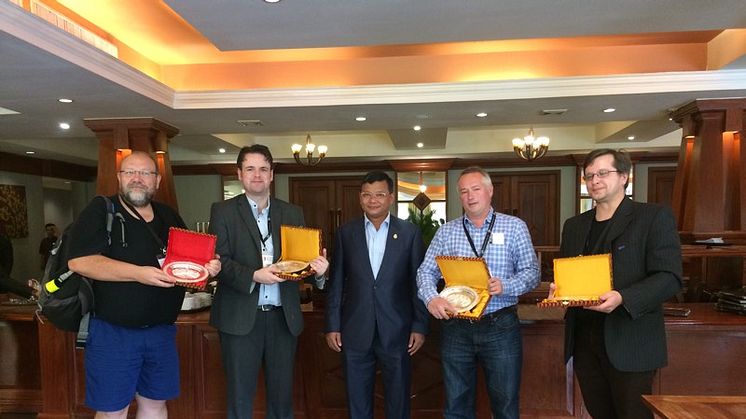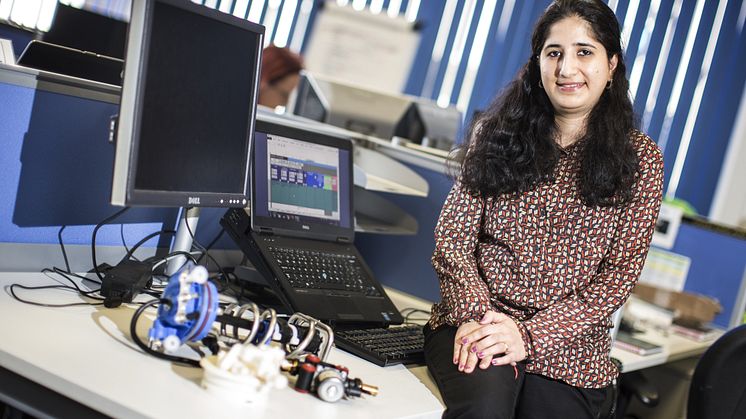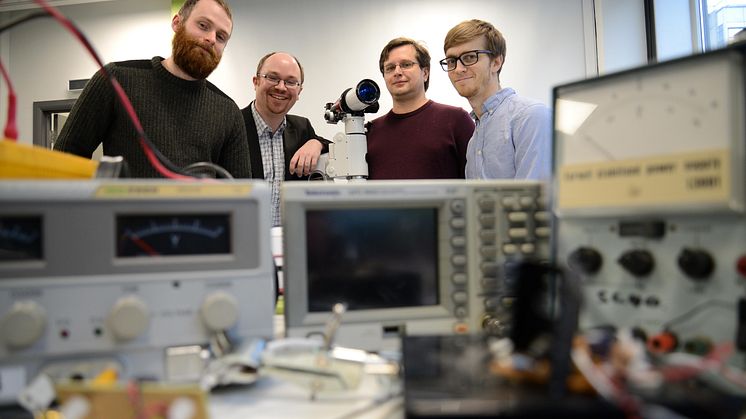
Press release -
Northumbria supports the study of STEM subjects in former war-torn Cambodia
Astrophysicists from Northumbria University, Newcastle are working with the Cambodian government to help students in the former war-torn country to study science, technology, engineering and maths (STEM) subjects.
The initiative comes on the back of an appeal from the Cambodian Minister for Education – calling on the global scientific community to tackle the ‘international crises’ of fewer students choosing STEM subjects.
The Minister made the plea in his speech to a recent international astrophysics conference in Cambodia, organised by Northumbria University.
He also spoke openly about the deaths of thousands of scholars, doctors and engineers following the Cambodian Civil War, describing how survivors had to re-build much of Cambodia’s scientific knowledge and expertise, ‘from scratch’.
In response, Northumbria academics are now exploring an undergraduate scholarship scheme that could enable high-performing maths and science students from Cambodia, to study at the University.
Cambodia has an economic development vision to transform itself to developed country status by 2050, with education forming an essential foundation for economic growth. To support this, it has a strategy to focus on Science, Technology, Engineering, and Mathematics (STEM) subjects.
The Minister for Education, Youth and Sport in Cambodia, HE Dr Hang Chuon Naron, said: “The Khmer Rouge, under the control of Pol Pot, stripped Cambodia of many things, including doctors, scholars, engineers and political figures and we suffered a complete brain drain.
“We need more engineers to improve our infrastructure. We need network developers to maintain the infinite routes of information in and out of the country. We need doctors to cure our sick, foster our young, and nurse our elders. We need STEM.”
Dr Eamon Scullion and Dr Sergiy Shelyag from Northumbria University’s Faculty of Engineering and Environment Solar Physics Group, organised the ‘Dynamic Sun II’ conference, alongside colleagues from the University of Sheffield. They are now involved in detailed talks around how UK universities can support STEM study in Cambodia.
Dr Scullion said: “This was a hugely successful conference, bringing together senior scientists, researchers and students from across Asia, North America and Europe. We were delighted to have the chance to talk directly with the Minister about how we can help support his ambition to rebuild the country’s expertise through the education of its next generation.
“We’ve been very excited by our discussions so far, including exploring an application to the UK’s Science and Technology Facilities Council (STFC) for potential research grants to initiate the collaboration with Cambodia.”
The meeting with the Cambodian Minister for Education was facilitated by the UK ambassador for the Royal Embassy of Cambodia in London, HE Ms Soeung Rathchavy. She hopes to visit Northumbria University in the near future to strengthen the links between the Cambodian government and academics from the UK
The Dynamic Sun conference series offers a platform for experts in the field of solar physics and space science, to discuss cutting edge challenges. The events aim to unite research communities in the east and west; to share knowledge, address challenges and help to establish long-term relationships between research groups.
The Cambodian gathering was the second in the series of Dynamic Sun conferences and its theme was ‘Solar Magnetism from Interior to the Corona’. The inaugural Dynamic Sun conference took place in India in 2016.
The conference was supported by funding from Northumbria University’s Faculty of Engineering and Environment, specifically from the Multi-Disciplinary Research Theme (MDRT) of Extreme Environments.
Topics
Categories
Northumbria is a research-rich, business-focused, professional university with a global reputation for academic excellence. To find out more about our courses go to www.northumbria.ac.uk
If you have a media enquiry please contact our Media and Communications team at media.communications@northumbria.ac.uk or call 0191 227 4604.












